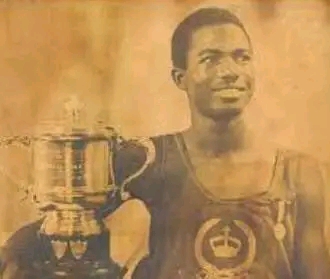By Peter Omopo
September 6, 2025
In 1950, Josiah Olutunji Majekodunmi made history as the first Nigerian athlete to win an international medal, clinching silver in the men’s high jump at the British Empire Games in Auckland, New Zealand. His achievement marked Nigeria’s debut on the global athletics stage and laid the foundation for future sporting triumphs.
Just four years later, in 1954, Majekodunmi’s trailblazing feat was surpassed when Emmanuel Ifeajuna struck gold in the same event at the British Empire and Commonwealth Games in Vancouver, becoming the first Black African to win gold at the Games. Despite this, Majekodunmi’s 1950 silver medal remained a cornerstone of Nigeria’s athletics history.
Early Career and Olympic Appearances
Before his international breakthrough, Majekodunmi was already a force in school sports. In 1947, he captained the Abeokuta Grammar School athletics team to victory in the prestigious Grier Cup for Nigerian high schools—the school’s first and only triumph in the competition.
He went on to represent Nigeria at the 1948 London Olympics, part of the nation’s first Olympic team, and later competed in the men’s high jump at the 1952 Helsinki Olympics, finishing ninth.
A Family Legacy in Sports
Majekodunmi remained an inspirational figure in Nigerian athletics until his death on October 9, 1996. His sporting legacy endured through his daughter, Olawunmi Majekodunmi, who rose to prominence as one of Africa’s top female table tennis players in the 1970s and 1980s, winning multiple continental titles.
Majekodunmi’s pioneering efforts are today remembered as the spark that ignited Nigeria’s long and ongoing journey in global sports.

